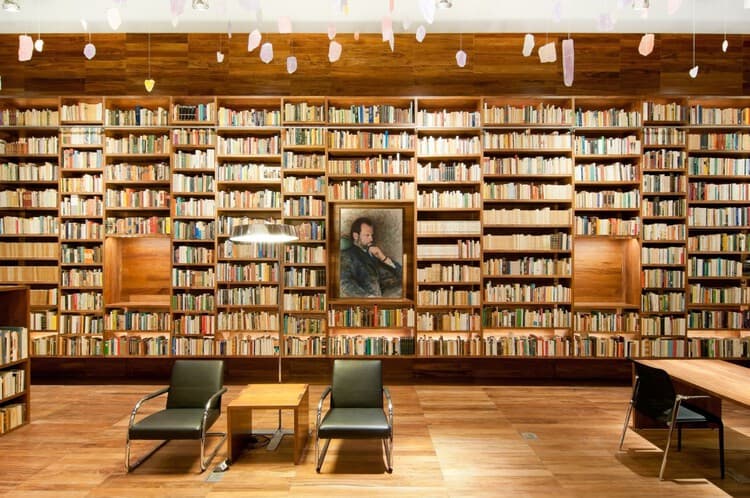
Literary Clubs and Art Spaces: How Libraries Are Becoming Centers of Creativity
- Posted on 2025-04-28
Libraries in Portugal are no longer associated solely with silence and the mandatory ban on conversation. They are no longer just places for storing books — today, they are vibrant cultural spaces open to creativity, communication, and self-expression. This transformation is particularly evident in the rise of literary clubs, art workshops, and events that are regularly organized in modern libraries throughout the country. These changes are turning libraries into cultural hubs where people of all ages, backgrounds, and interests come together.
The New Role of Libraries in Portuguese Society
In the past, a library was a place for solitude. Today, it’s a space for interaction. This transformation didn’t happen overnight: since the early 2000s, Portugal has implemented several initiatives aimed at revitalizing libraries. One of the first examples was the “Biblioteca Viva” project in Lisbon, which demonstrated how even traditional spaces can become dynamic centers of cultural life.
Municipal libraries are increasingly expanding their functions by opening coworking areas, exhibition halls, lecture rooms, and workshops. This helps attract young people and those who previously saw libraries as irrelevant or uninteresting. For example, in Porto, the Almeida Garrett Library regularly hosts creative workshops, author talks, and events for children and teenagers.
Literary Clubs: The Return of the Spoken Word
One of the most popular forms of library activity in Portugal remains the literary club. These are not just gatherings of reading enthusiasts — they are full-fledged communities where literary works are discussed, passionate debates take place, and original texts are written.
Clubs are usually formed within municipal libraries but can also operate in independent art spaces at cultural centers. In Leiria, for instance, the “Leitores em Movimento” club brings together fans of contemporary prose, as well as poets, translators, and playwrights. Each month features a discussion of a selected book, along with open readings of members’ own works.
What’s especially important is that participation in such clubs does not require any special preparation. This makes them accessible and inclusive. People come not only for the books but also for communication, sharing experiences, and finding new meanings and inspiration.
Art Spaces: A Synthesis of Art and Literature
Modern libraries are increasingly integrating elements of visual and applied arts into their programming. Exhibitions, art installations, calligraphy classes, and book illustration workshops are becoming an essential part of their cultural offerings. For example, in Cascais, there is a creative lab at the Casa das Histórias library that offers courses in comic book creation, book graphics, and cover design.
These initiatives not only help develop artistic skills but also promote a deeper understanding of literary texts. Visualizing what has been read through drawing or collage allows for a new perspective on the content, especially when it comes to poetry or abstract prose.
Moreover, art spaces in libraries often become platforms for debut exhibitions by young artists and photographers. This approach helps build bridges between writers and visual artists, encouraging collaboration and the emergence of new creative formats.
Examples of Innovative Libraries in Portugal
Some libraries in Portugal have already become known as successful examples of blending traditional and modern cultural models. In Braga, the Lúcio Craveiro da Silva Library is one of the pioneers of the new approach. It regularly hosts film screenings, music evenings, culinary workshops, and literary readings. The library actively collaborates with universities, schools, and NGOs, becoming a platform for interdisciplinary dialogue.
In Coimbra, the Joanina Library at the University of Coimbra combines historical heritage with modernity. Although the building is famous for its 18th-century architecture and book collection, it also hosts lectures and quests for young people designed to spark interest in literature and history through interactive formats.
Libraries as Spaces for Social Integration
One of the key roles libraries are playing today is in social integration. Thanks to cultural and creative initiatives, libraries are becoming meeting places for a wide range of groups: students, retirees, migrants, and families with children. Literary clubs help overcome language barriers, and art activities aid in socialization — especially for those who find adaptation challenging.
In Lisbon, there are several projects focused on migrant communities, offering Portuguese language lessons through reading modern prose and poetry. These are not just educational sessions but also opportunities for participants to share their cultures, tell personal stories, and feel part of the local community.
Conclusion: From Silence to Creativity
Modern libraries in Portugal are no longer merely repositories of books — they are open, flexible, and inspiring spaces that play a vital role in the country’s cultural life. Literary clubs, art workshops, exhibitions, and educational programs make them vibrant and necessary — especially in a digital era when live communication and creativity are more important than ever.
Every visit to such a library can become the start of a new passion — or even a new chapter in life. This is the unique power of 21st-century libraries: they surprise, inspire, and bring people together through culture.
Libraries in Portugal are no longer associated solely with silence and the mandatory ban on conversation. They are no longer just places for storing books — today, they are vibrant cultural spaces open to creativity, communication, and self-expression. This transformation is particularly evident in the rise of literary clubs, art workshops, and events that are…